April
This month I start quite differently, with a question. How much milk does a dairy cow produce in a day? This arrived on my phone when in the opticians just before lockdown. I am still with my old glasses, but I got the question answered before I arrived home. I shall reveal later.
Crops, including the grass, are all growing well. March has been a good month for light and there was enough moisture down in the ground for good top growth. Last week’s rain has washed the fertiliser in and prospects for a fair harvest are looking better than for the last 6 months. We have changed the nitrogen fertiliser policy for the 200 acres of Spring Barley. Previous years we have aimed to grow a quality grain suitable for the brewing industry. Two years ago we had a good premium. This year with the increased acreage being grown nationally and all pubs closed, we have changed strategy. We are applying more fertiliser to aim for higher yield with a lower quality.
The cattle have had a good start to the grazing season. The grass has grown well & they have hardly had to take shelter. (photo attached) As the village has been on the walk, I am sure that you have seen cow slips and the May blossom have looked delightful for weeks.
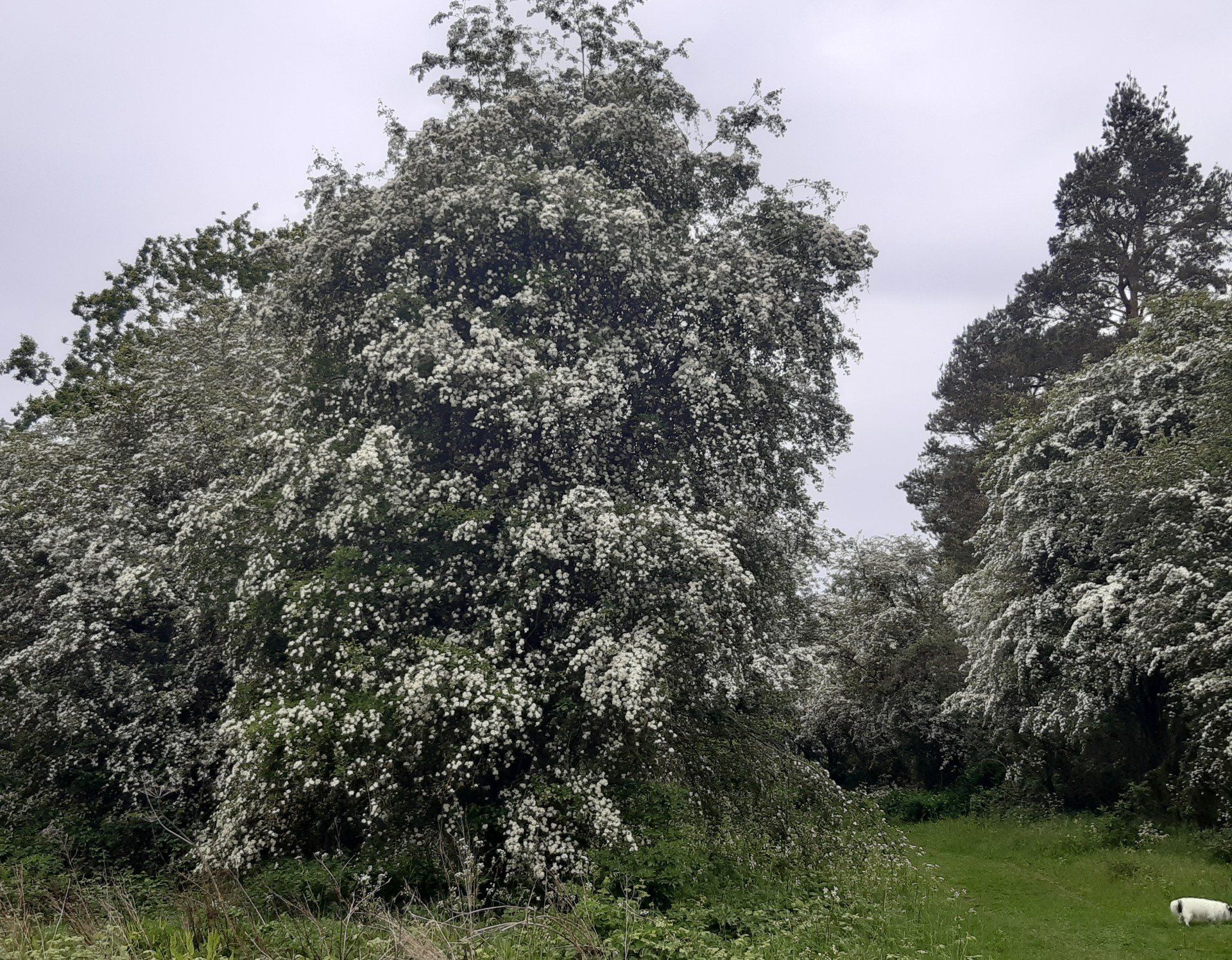
We are so lucky to have beautiful countryside around us. Lovely to look at when we can’t get away.
From a food supply point the lockdown has had an enormous effect on the industry which I am proud to be part of. It is satisfying to produce your food. Before lockdown 50% of food was purchased and eaten out of home. Be it breakfast on the go, in the train or at the office desk. Elevenses in one of the town coffee shops. A sandwich lunch and a takeaway on the way home was the norm for many.
Suddenly the 50% was slashed overnight to a miniscule amount. Shelves emptied in the supermarkets and panic buying set in. The veg growers could not get the labour needed to pick the crops. Luckily the weather improved, and I heard of a farmer who finished his potato harvest on Easter Sunday. Just 5 months late and what was destined for the chip shops in February was suddenly worthless as the chippies closed.
With dining out & the likes of McDonalds closed there was difficulty for the supermarkets to get enough beef. Certain cuts were in great demand. It would be wrong to pass comment here on the quality standard they resorted to to fill their shelves. Suffice to say it came from abroad where there are few welfare standards and little or no quality assurance.
Dairy farmers were also severely affected. To answer my question above. I took Chris Tarrant’s advise & phoned a friend! The High Tec dairy farm at Great Staughton on the day I asked, had a herd average of 42 litres / cow. (73 pints) The best young cow in full lactation produced a massive yield of 123 pints in 24 hours! (These figures have about doubled in the last 30 years).
The lockdown had a drastic effect on the milk marketing & distribution. The likes of Costa Coffee cancelled all orders. One company who buy & distribute catering milk dropped the price to just 5p/litre to farmers. The cows cannot be turned off like a factory machine. They must be milked and the milk has to go somewhere. This led to tens of thousands of litres of milk not worth collecting and so sadly it went down the drain. To add insult to injury the supermarket shelves were nearly empty at the time. The “just in time” policy broke down under the pressure. My friend at Great Staughton came over well on the local BBC TV news. David explained the situation well and with their computer run dairy management they reduced their production by 4% overnight. Their cow’s rations are fed to them by the exact amount they need while being milked by robots. It is all controlled by the computer which is in the office above the cattle in the shed. It is a very impressive set up which really does operate 24/7 365 days of the year.
Finally, I thank the customers we have had at our shop counter. You have kept me busy in these tricky times. I am pleased to serve you and you can be confident where the beef has come from! I hope we are soon able to go out & meet up again.
Life on the farm
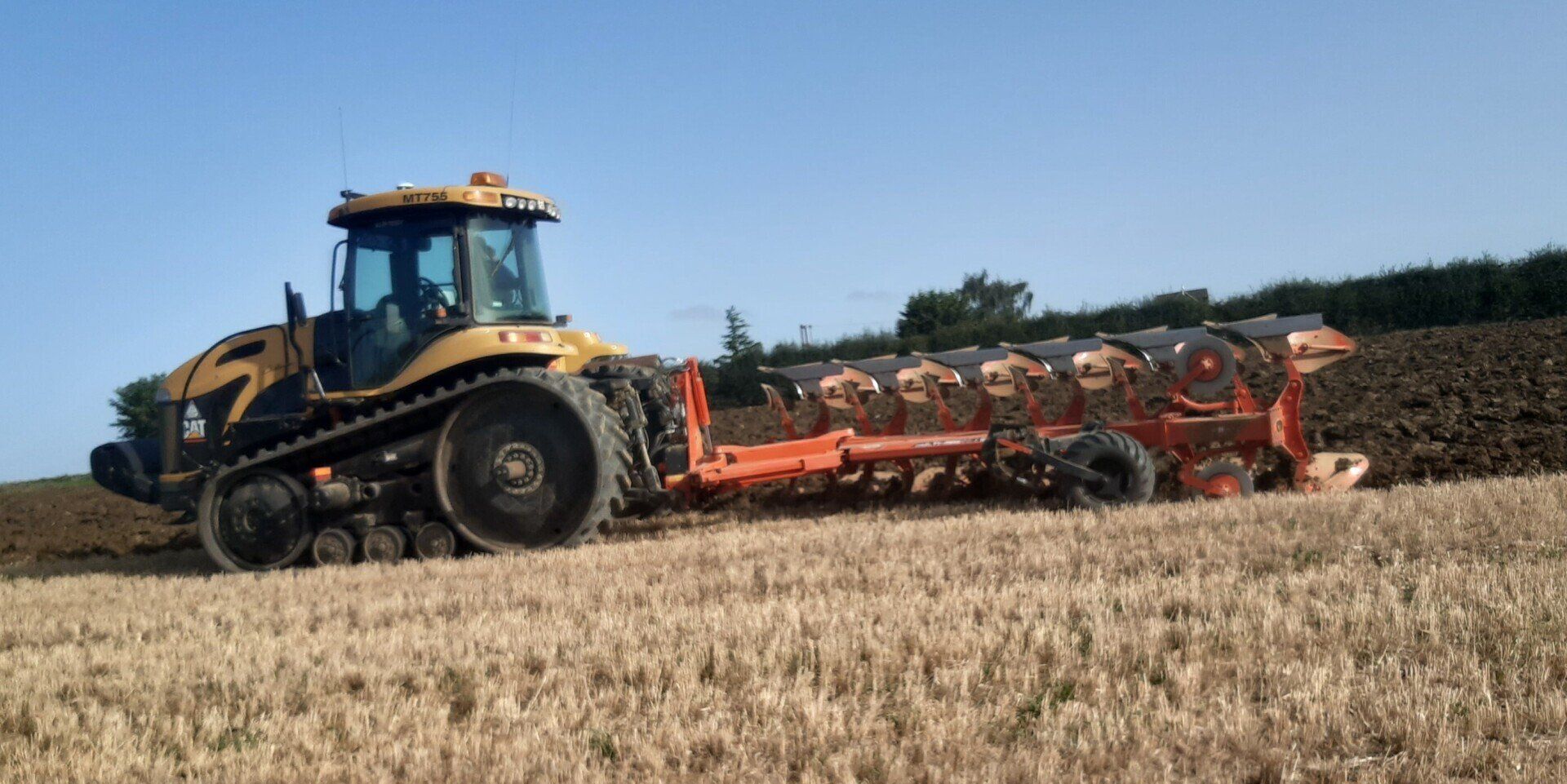
We have been busy outside all of September. You have probably seen that most of the fields have been ploughed or cultivated and gone brown. These days there is not so much land ploughed. This is because it is relatively slow and expensive. It needs great skill to do a good job and there is a lot of work to produce an autumn seed bed. However it is still done once in a four year rotation. (picture attached) On the first Friday of the month we had a visit from our MP Mr Jonathan Djanogly. He was dressed very casually for his farm visit and we were in our work clothes. I was joined by two other local farmers from his constituency and Oliver from the National Farmers Union. (picture of MP meeting) We all kept a safe distance because of the restrictions, rather than our dirty clothes! In the cattle yards he spent quite a time looking at some fattening bulls. There was a lot of chat about the Agricultural bill & food standards. I had a large cardboard box which had been packed with beef. It showed the country of origin where their production standards are far less than ours. The beef had been sold & eaten locally. He was quite surprised. He had previously voted against the government about imported food standards. The NFU had their amendment in the House of Lords supported by 107 votes since his visit. It is only fair that imported food should be of the same quality that we have to adhere to. We also discussed the harvest & rural crime at length. The current major concern is flytipping, which he saw first-hand, rural theft & hare coursing. He listened intently and has subsequently written a strong letter to MP Priti Patel, the Home Secretary. He stayed for nearly two hours. We have had two cases of hare coursing this week. They are easily identified. A group of 3plus people & dogs running in a field. I give the same advice as before: Do not approach these people. If you see coursing going on, please put yourself in a safe place. Ring 999 and report the incident. Huntingdon call handlers are well briefed and ready for another call, vehicle reg numbers also useful. The police seized two 4x4 vehicles yesterday. We have this morning brought the first bunch of fattening bulls in for the winter. They are at the lodge buildings where there is a lot of space for them. The grass has slowed up growing and there is not a lot of goodness in it. We want to try to keep their weight gain at about 1Kg / day. This is difficult to do outside in October without a lot of supplementary feed. Once in the farm buildings they are regularly weighed, and their diet can be adjusted. Tomorrow (1st October) we have the annual inspection for the farm audit. They have now started visiting farms again but with new guidelines. We have had the same assessor before; Gavin & I will be going through all the hoops for ages. I think all the drawer of paperwork is ready, but will no doubt be pulled up on some small detail. It is important for producer & consumer to get our certificate. Once passed we will then be able to put the Red tractor sticker on the passport that accompanies every load of grain that leaves the farm. When at a grain terminal, I found it hard to believe my eyes. The passport, sticker, colour of paper etc and lorry details is scrutinized far more than the load of grain being moved!
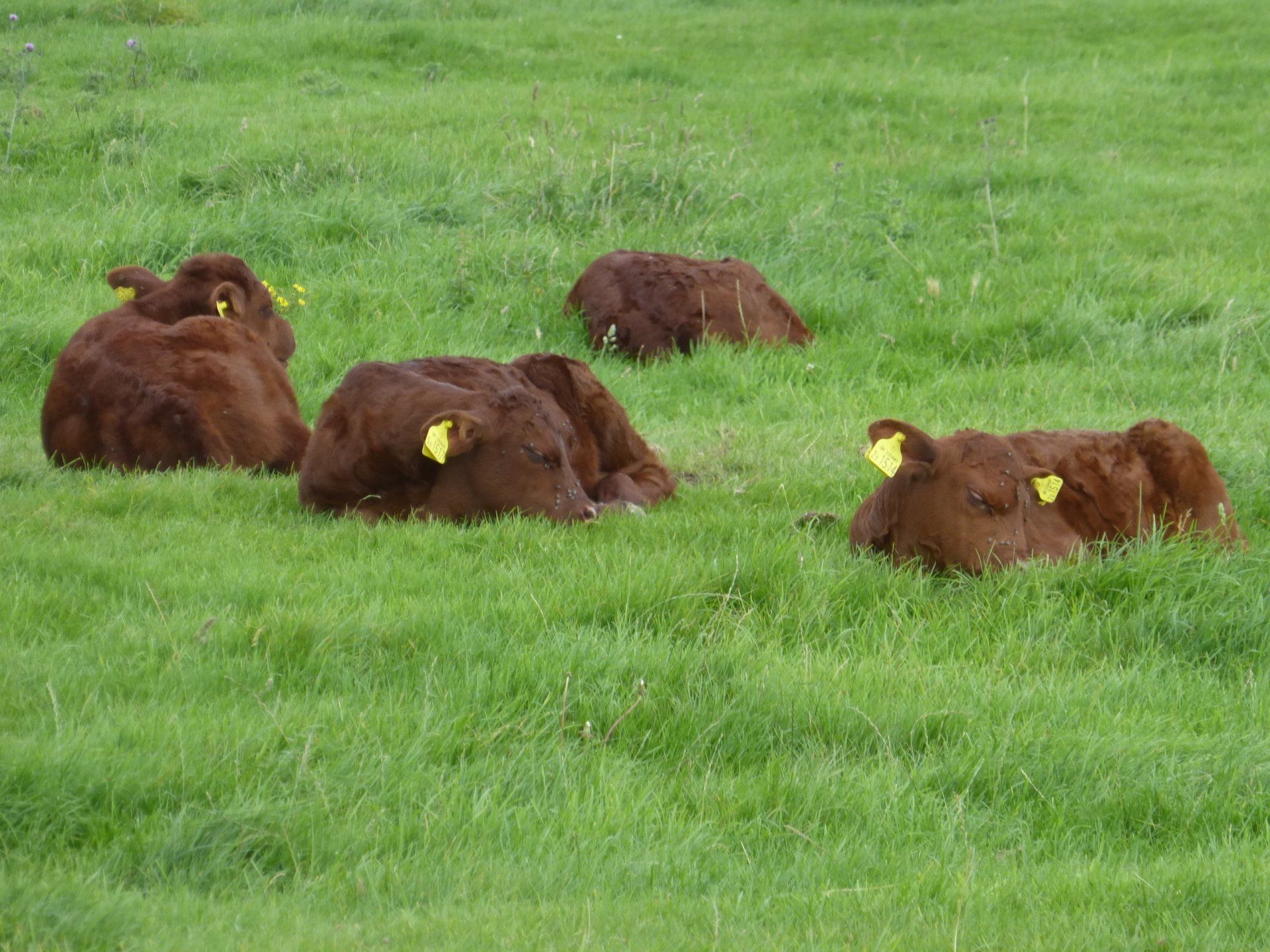
This is the first time I have written the August report when harvest is not complete. Currently (31st August) we have 2 wheat fields and a field of beans getting wet. It has been a long and protracted harvest. Only the rape went in at the right time last August and ripened early due to the heat in July. We knew the yield was going to be disappointing because of the Cabbage Stem flea beetle attack and poor weather conditions. We have been growing rape for over 30 years. I don’t need to look up all the field record’s, I know it is the worst yield yet. We averaged about 1 tonne per acre. I have heard of others doing an awful lot less! We had late October and February drilled wheat. In a normal season all should have been drilled from the second week in October and finished by when we change the clocks. The relentless rain set us back & things did not improve enough for a proper catch up. The earlier drilled first wheats naturally ripened earlier and were harvested dry. The spring Barley crop was ready before the late drilled wheat. We started it on 12th August in extremely hot conditions. That evening the thunderous rain arrived and everything was delayed. Since then we have had 105mm of rain. Double what we expect for the month. Not only did we get rain we also got strong winds knocking the grain onto the floor. We measure wind speed at the turbine, it has been windy. So rough, the result was that last Wednesday 59.9% of the National grid was powered by wind power. A new record. We eventually finished the Spring barley. This year we opted to grow for quantity rather than malting quality. We ended up with a low yield & feed quality. The barley straw baling for the cattle was delayed because it got wet. Like the season, the barley was short and the number of bales down. We have had to bale many more acres of wheat straw to get enough for the cattle bedding & feed for the winter. We have plenty for them now. Final comment on the harvest: A year best forgotten! Luckily there has been a benefit from the weather. The grass has continued to grow strongly, and the cattle have done well. This last fortnight calves have been arriving daily and are doing fine. Gavin has also been selling bulls for other breeding herds. They have been going all over the country. The cultivated crop harvest has been well below average & disappointing. But luckily, we do harvest the elements. You have all seen the turbines and the generation this year has been good! The solar panels on the grain store roof (40Kw capacity) have also had a good year. I mentioned earlier in the year that we were planning water harvesting. We have now got 3 tanks collecting water off the shed rooves. Total capacity of 40 000 litres. No surprise, they are all full! The soft water is used for crop spraying, cattle drinking in buildings and washing water. There is a financial benefit from all three but alas a long way short of making up the loss on the arable farming job. Rape drilling is nearly finished. There is plenty of moisture for germination! The wet has brought up the slugs, but at the time of writing the dreaded cabbage stem flea beetle are only about in small numbers. If the present population doesn’t increase for 3 weeks the crop should be OK going into the winter. We are hoping hard for a better season.
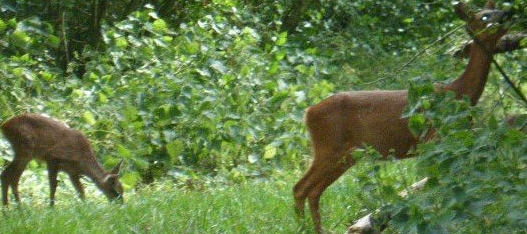
This month I start where I finished last month. In my last paragraph I mentioned the petition requesting the government to ensure that food imported is to the same standard as we produce here in the UK for you. The NFU had support from the media and our President, Minette, sent out a video to thank everyone who signed the petition. Her timing coincided when one million had supported it. I thank those in Tilbrook who helped the cause. In case you missed it, the link is here again: https://www.campaigns.nfuonline.com/page/56262/petition/1?en_chan=fb The 80 000 emails to MP’s & the lobby have caused a U turn & today the government have announced the setting up a Trade & Agricultural Commission. The rain in the last few weeks has been very welcome. Farmers are satisfied! The prospects for harvest are looking better again. Nothing is safe yet. But we are getting ready. As hay was all done early, I would be happier though if I had been able to book up a quick holiday & get away before harvest. This week we should be having a family wedding, & in September Ruth & I was invited to her God Daughter’s wedding. One local & the other in South Island New Zealand. Alas both changed. But I am pleased weddings are starting again & this week our beef is being served at one in the area. I hope the food will be like the numbers: Quality rather than quantity! In the last month we have been making improvements around the farm. You may have noticed some wider gateways to assist getting the ever-bigger tackle into the fields. Some of the gateways were more suited to a pony and trap & skill was needed to get into some fields without ditching. At the other end of the spectrum there are two new electronic gadgets in the shop. One was proving quite tricky to source. I had international phone calls from Ireland & Warsaw in Poland before getting sorted. Hopefully, you will have a better experience when next in the shop. Currently there is just one slaughterhouse operating in Cambridgeshire. Years ago, there would have been one in nearly every village. Animals would have been walked from the farm and food miles were not measurable. The abattoir we have been using for the last 15 years suddenly closed. The interpretation of some of the regulations was greater than the boss could take. He chose to shut and is currently working with less stress. He still has a license and could start again after lockdown. We are currently going to one with a Leicester post code. It is a few miles closer than the previous journey. I am hopeful they can do what we want, and you will not notice any change. As we have not been to any shows and limited activity of interest, I was short of a photo for this month. So, Sunday afternoon I went for a walk with my camera. I prefer it to my phone for a good picture. I include what I found. I don’t know who was the most surprised! A Roe deer with her fawn was in focus. Not my best quality but subject didn’t wait to allow a better snap. Soon after I found what I went for, the Common spotted orchid (Dactylorhiza fuchsia). They have had a good early flowering season. Both subjects are quite rare & my pleasure to share with you. No report next month as traditionally all are away or busy harvesting. So, lets hope lockdown continues to be released and we can meet again.
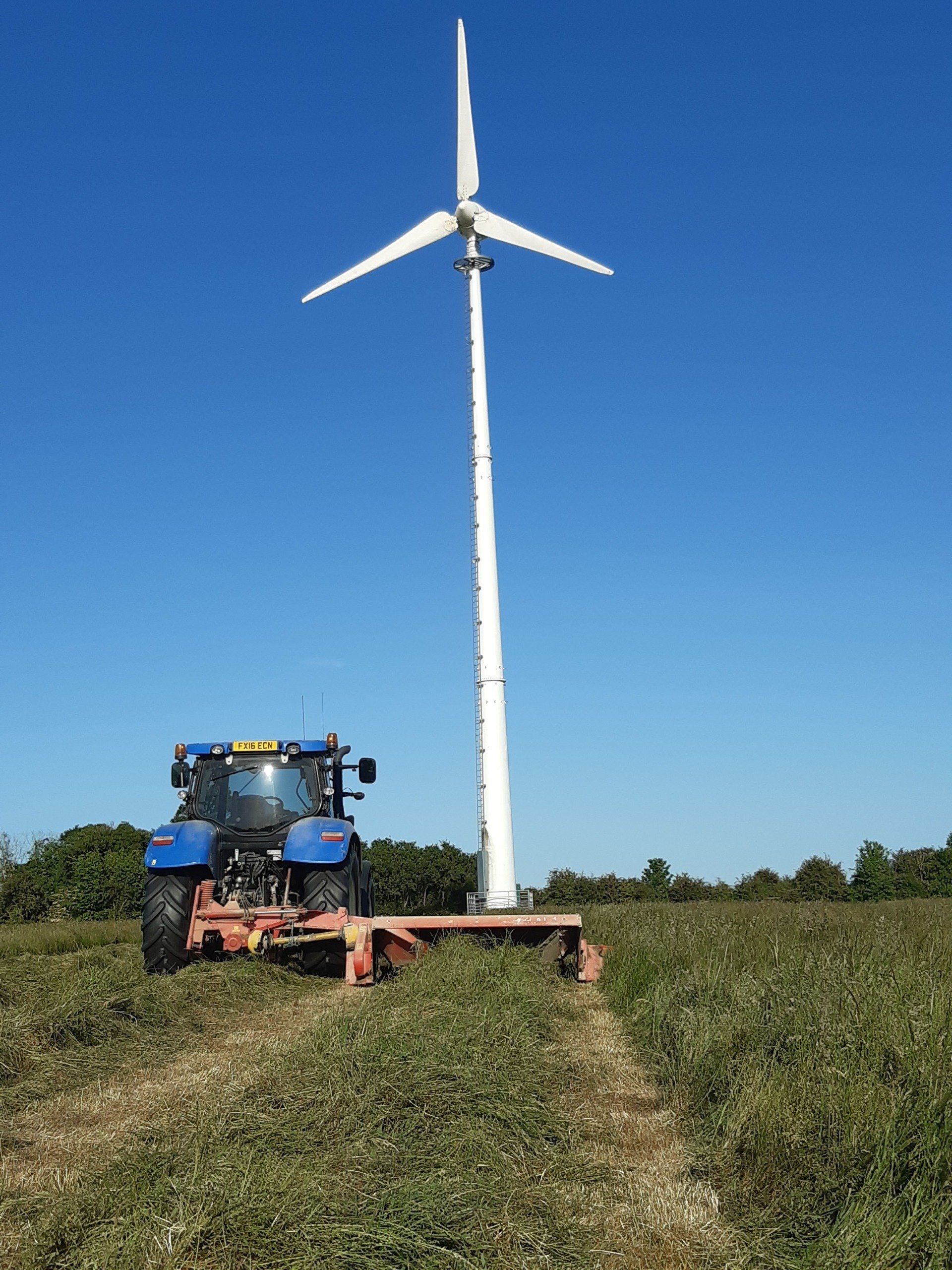
2 headlines this month. 31 102 deaths and it hardly makes the news and a month with no rain. DERFA have recently released the number of cattle slaughtered in England & wales with Bovine Tuberculosis in 2019. A dreadful disease that is proving exceedingly difficult to eradicate. The figure is a reduction of 6% on 2018 (32 925). We have never had a case or a reactor. Geographically it is spreading closer to us. Currently we routinely must test every animal every 4 years. Just 3 miles away in Northants it is to test annually. Even under the Covid 19 lockdown the testing is continuing. Some farms it is every 60 days. There is a compensation for slaughtered animals. For years we have had to do pre-movement testing & when an animal comes back, they must be isolated for 60 days & then pass another test before joining the rest of the herd. (EG going to a show.) Hopefully, the eradication will speed up now that it has been shown that reducing the badgers reduces the cases in cattle. The new proposed Covid 19 guidelines for humans coming back from abroad and only isolating for 14 days doesn’t seem to harsh! A month with no rain. This is only the third time I have recorded a zero month. Not only has it been dry, it has been very warm & sunny. Last month I reported that all crops were growing well & prospects were looking better for harvest. Currently the cereals are all under drought stress. The Oil Seed Rape is wanting water to fill the pods and to mature. The grazing fields are no longer green, and the cattle are getting short of grass to eat. There has been a benefit. We have been busy hay making. Normally a job for June which often runs into July. This year we have the end in sight before we would have normally started. I mowed the first field on 21st May. The earliest ever. The quality is particularly good and the quantity just below the average. None is going to be sold now. Currently the grass has stopped growing, and things could become short. We need to have enough to feed the cattle till next Easter. (picture attached mowing hay) Electric Power Generation is quite significant income for the farm. The electricity generation and use has been difficult for the national grid during the Covir 19 lockdown. It has been windy and record-breaking hours of light. Renewables have been producing a lot of energy. Nationally power demand during May has been 18% less than last May. Consequently, there has been a surplus of power & no coal has been needed for 52 days. In the wholesale market the price of electricity was negative. The Agriculture Bill has been going through the House of Commons. I am not going into detail here, but it is setting the way we are going to use the land in the future and to look after the environment. It is not all about producing food. One amendment did not get voted through. We are hoping it will be put in when the bill gets to the house of Lords. Currently food produced to a lower standard that UK farmers have to achieve will be allowed to be imported. Since we left the EU 5 months ago, there has been 100 000 tonnes of rapeseed imported from Australia. It has been grown using chemicals banned in the UK. This is putting us at a trading disadvantage and giving the consumer things like chlorine treated chicken. My advise is to buy British when you can (and local).
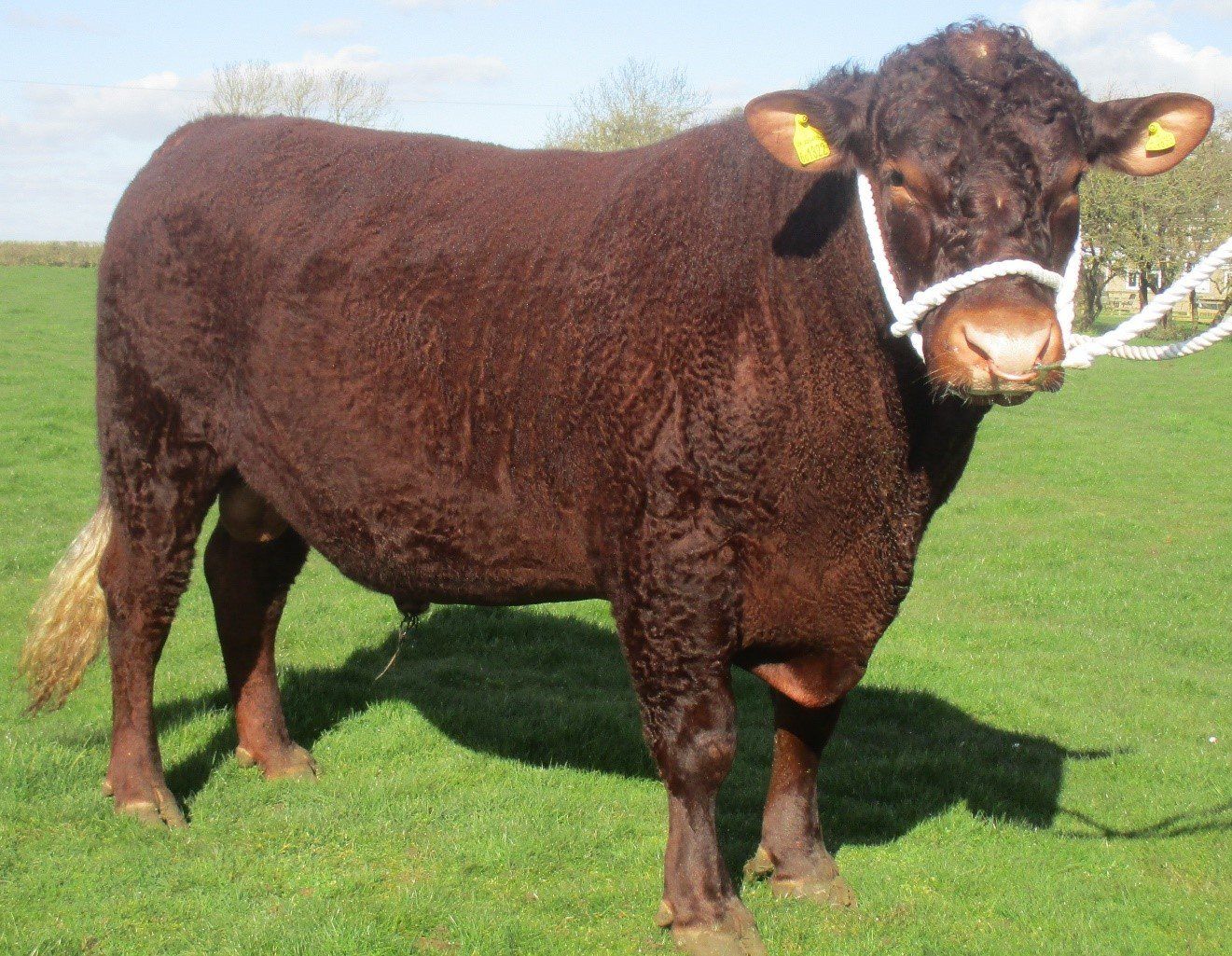
Welcome to the many who have joined me this month: working from home. I have never known anything different. I hope we all manage to get through these challenging times. Life on the farm must go on, albeit some distance apart. I should be on holiday, but alas, better in Tilbrook than on a cruise ship in the Med this year! Last Saturday I completed the Spring Barley drilling. The conditions were fair and hopefully with a good spring & kind summer weather, we should be OK. The February drilled Winter Wheat which was a mere 4 months late has come through with a good % emergence. Only time will tell how it turns out at harvest. You may have seen that the cattle are out at grass. They have had a long winter in the buildings as some were in a month earlier than normal. It has been OK for them, not too cold and plenty of straw in the bed and hay in the manger. They have turned out in fair condition & will soon put on weight with plentiful grass in front of them. All the ones in the grazing fields near the village will stay there until they are brought back ready for calving. Disappointing though, we are not able to go to the breed society spring sale in Sedgemoor Market this week. A young Bull (photo attached) Tilbrook President 2 ½ years old had been entered for the show & auction. He has had his DNA certified by Weatherby’s and he will only give polled calves. (No horns) He has passed a whole range of blood tests and pre movement Bovine TB test. He has been halter trained and looked after individually all winter in preparation for the show & sale. Currently stock auctions for slaughter animals can still go ahead. However, Pedigree sales are off, as are all summer shows. Luckily there was much interest in him, and he has been viewed before lockdown. Hopefully he will be going down the M11 shortly without all the razzmatazz of going to the Devon showring. His job is “key” and he will be able to go, unless the rules change again! I am going to look back beyond the month, to the foot & mouth epidemic of 2001. There are a lot of similarities to the current pandemic. The first case was in February and initially it spread slowly. The government were slow off the mark to tackle the disease and the number of cases soon escalated. Like now, new rules were quickly brought in, understood and obeyed. All livestock farms were in lockdown. The road through the farmyard to Covington was shut for months with a disinfectant straw mat outside the cattle yards. No lorries came onto the farm. No livestock could leave, not even to a slaughterhouse until inspected by a vet. Many retired vets were recalled back to work for MAFF. MAFF had a name change to DEFRA after the disaster. Initially all infected animals were slaughtered and burnt on farms. All rural footpaths were shut to help prevent the spread. Like now there were hotspots in certain parts of the country, where the population is higher. This time London, last time Devon & Cornwell & the lake District where there are more cattle & sheep than humans. The general election was delayed, this time the local elections. The use of testing, like now again, was questioned. The situation got worse and eventually the army were called in to help. The acronym SOS in 2001 didn’t mean “Save our Souls” but “Slaughter on Suspicion” and every animal within 5Km of a suspected case was also slaughtered. There was too much flesh to burn on farms so there were sites were hundreds of lorries tipped carcases to be buried in mass graves. The number of cases soon dropped, but hotspots continued for a while. Eventually no more cases and the clean up continued with all premises being disinfected. 6 million farm animals were slaughtered. 10% of the UK livestock. It was a devastating time for the 2000 infected farms. There was one benefit. Unlike now nobody walked the countryside from February to October. The nesting birds had a wonderful undisturbed nesting season! The current situation can’t be so brutal & hopefully we will soon be over the worst. Stay safe & keep your distance. Continue hand washing and we will pull through.
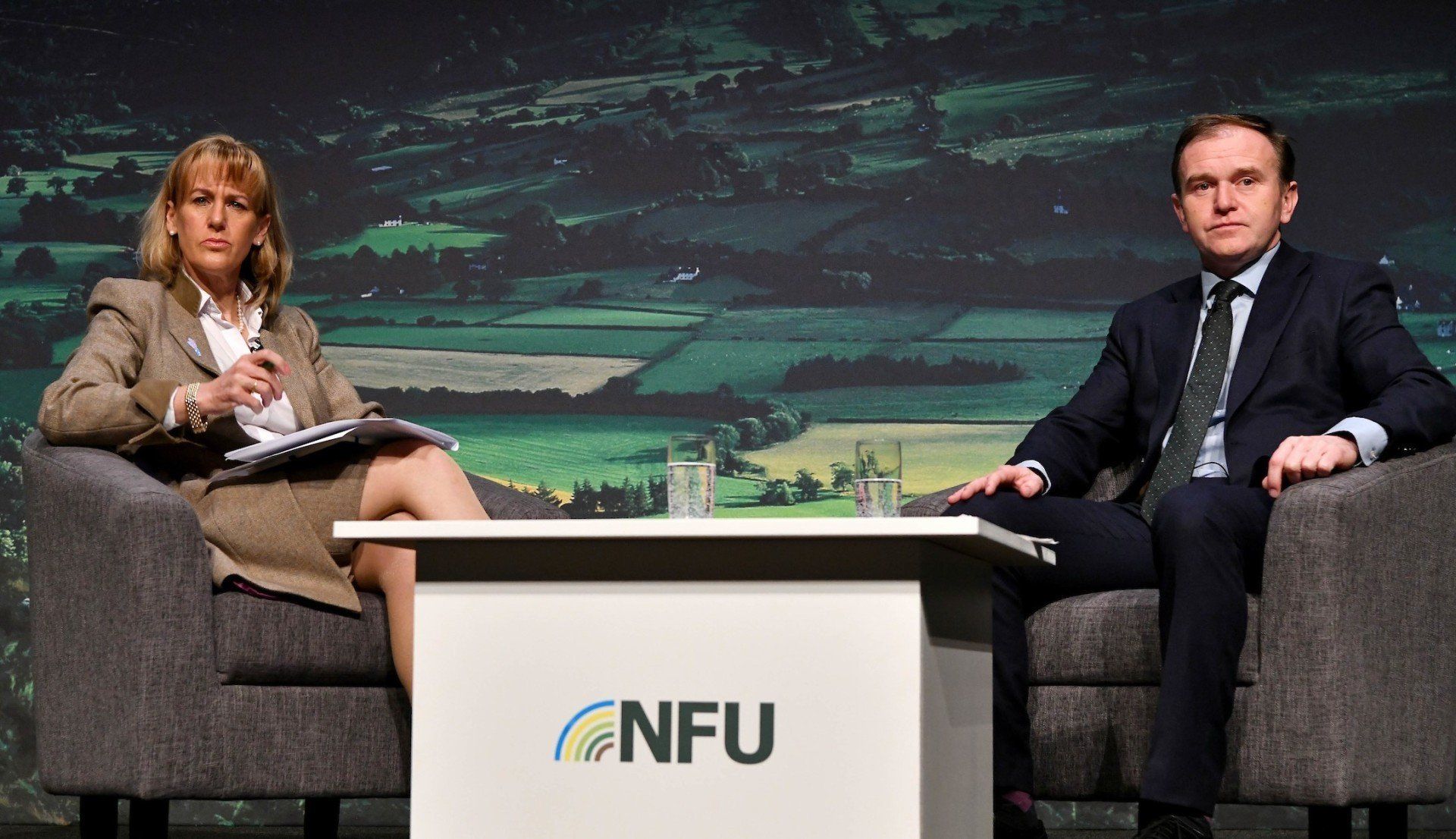
The month started windy but dry for the first week, just what we had been waiting for. The ground dried out enough to get some more wheat drilled. In order to encourage good spring tillering and to make up lost time the seed rate was nearly double the seeds / m2 used in early October. After 3 good days we were rained off on the Sunday morning when the wet arrived with storm Ciara. The max gust we had was 34.5 m/ sec at the turbine. (80mph) It had been shut down remotely to protect it from damage. The storm blew over 2 large ash trees. We will have enough wood to keep the house heated next winter. For 40 years I have heated the 8 bedroom farmhouse with wood collected from the farm. I did hear that the new minister for the environment was planning to stop the sale of coal & wet wood! I only ever burn dry wood. We did suffer some building damage but all repaired now. Dennis was only mild in comparison and we have a new monthly record for electricity generated. My continued professional development for the month was to attend a course on tyres and soil compaction. It was beneficial and amazing how tyre technology has changed since I was at college. We saw a big tractor put on some scales. It recorded 15 tonnes on the back axle. Yet when set into work in the field the force on the ground was only a bit more than the human foot. In theory it could run over your foot without breaking a bone! Another informative event was to attend the 46th revival of the hare supper. Now held at Stamford and rural types come from far and wide to enjoy a meal with jugged hare for the main course. My first attendance for a few years, I think I will be going again next year. Good company, good wine and food with a guest speaker made a very enjoyable pocket emptying evening. My final meeting was to represent Huntingdon at the National Farmers Union conference in Birmingham. The main speaker, new in post, Rt Hon George Eustice MP sec for environment was called to Downing Street to discuss the drowning country when he should have been with us. We had other distinguished speakers, Dame Carolyn Fairbairn , director general of CBI talking about trade. Emma Howard Boyd, chairman of the Environment Agency explaining how well they are dealing with the wet weather. The first evening supper was excellent. The food was as good as you could get in the best restaurants. How they served fillet steak for 1400 in a hall was incredible. We are grateful to the famous food suppliers who sponsored a lot of the food & wine. They were very generous. There was a lot of very noisy farmers by the end of the evening! At 11pm our lady president, Minette, called us to order to request us to be in the hall at 7.50 in the morning, an hour and a half earlier than the programme, to be ready for our Minister. (picture attached) 1200 delegates heard about the new Agricultural Bill and the post Brexit agenda for agriculture. He made a great effort to attend, gave a good address and answered a lot of questions in true political style! One of the NFU policies is for farming to become carbon neutral by 2040. The chart shows where farming currently stands. Professor Myles Allen at the conference explained how cattle are putting less carbon & methane into the atmosphere compared to 10 & 20 years ago. But there is still a lot to do.
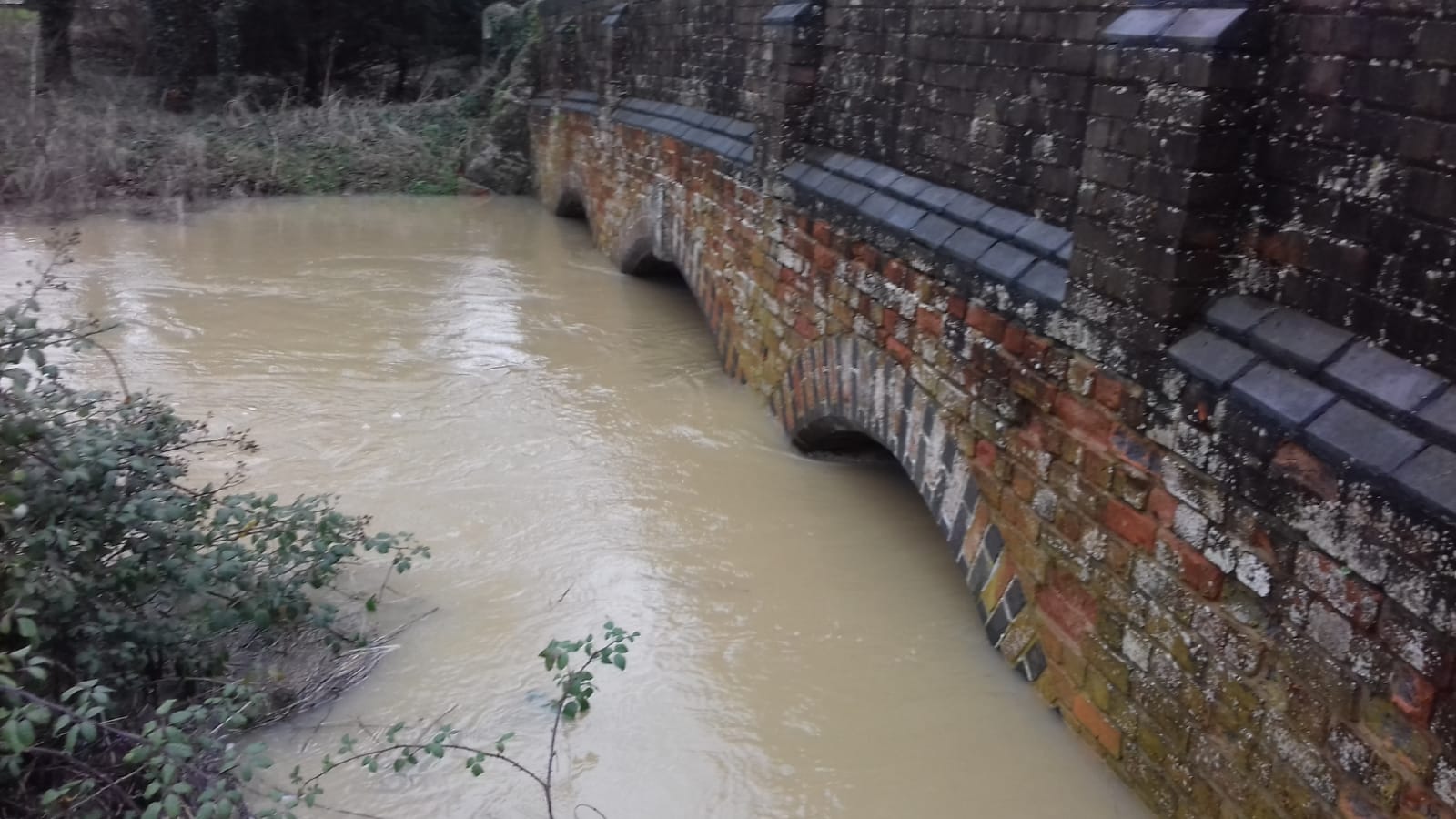
As we start a new decade, as expected little has changed. The wet weather continues, but it has been mild. Early in the month we hired a digger to clean out the ditches, we used our own labour to drive it. This is routing maintenance & good husbandry to assist moving water away the from the fields. It is so much quicker these days with modern equipment. It may surprise you to know, we pay the Environment Agency a fee for every acre we farm to be able to pass our water into the River Till. I attach a local picture where maintenance has been neglected and the consequences are easily seen. Last month the larger Endurance turbine passed the million units generated. This has saved 439 tonnes of carbon compared to fossil fuel generation. It produces enough power to supply nearly half the houses in Tilbrook. The financial income is now about the same as it cost to put the turbine up. There have been ongoing maintenance costs and last year’s breakdown to pay for. It is still on target to be fully paid off in year 8 or 9 of a 20-year contract. January has been a windy month and income from generation and export to the grid is just over £6000. The humid air has also caused respiratory problems with some of the cattle. Insufficient good air flow in the buildings caused some cases of pneumonia. Luckily Martyn soon spotted it, animal temperatures confirmed the problem and fortunately antibiotics soon cleared the infection. All are well again now; no long-term damage was done. It is the first respiratory infection for many years. Vejanuary, has come & gone again. January beef sales have been the best for many years. We had 1000 burgers in stock for a January burger sale. I had to make some more before the end of the month. I am not aware of selling any burgers to a Tilbrook household. As the floods have been out, I will hold the sale price for Tilbrook inhabitants for another week. Early in the month we received the green light from Natural England to be able to start the water harvesting, sprayer filling and chemical storage project. We have started by putting in 10 000 litres of water storage to supply the cattle troughs. The harvested roof water is soft, good Ph and no chemicals from treatment. There is a grant available for the project. It also stops the quick run off in heavy rain which causes problems. It also reduces the amount of water demand on the mains system at times of high need. When we are busy spraying we fill the 3500 litres in the sprayer every 45 minutes. Under normal rainfall we expect to be able to collect about 80 000 litres / month! I will keep you informed as the project progresses Finally, Brexit. I have not mentioned it before! 3 years of silence, but we are now out. I hope the trade details will be sorted out. Last week I attended an NFU meeting and the main concern will be to ensure any imported food will be to the same standard as we are used to in the UK. Our animal welfare and quality of produce is some of the highest in the world. There is low quality, suspect food available on the market. We don’t want to become a dumping ground for low grade food. In my opinion it has never been more important to buy good quality British food for most of your shopping.
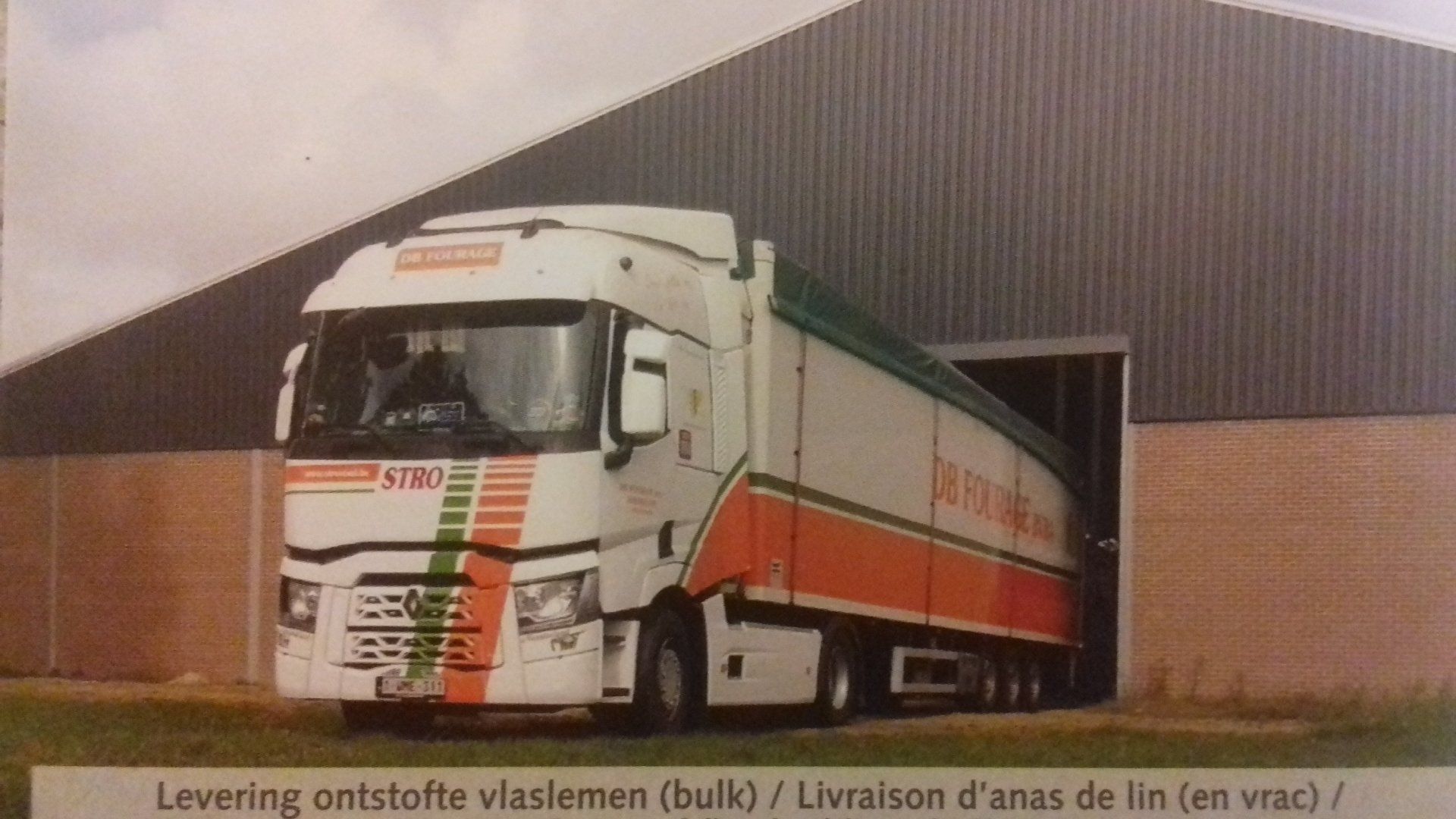
As is normal I look back at the year as we start a new decade. February the temperature was in the mid-teens and there was dust coming out of the drill as the barley was sown into near perfect conditions. Things grew well all through the spring and the cattle were out at grass early and thrived. All went well until June; we were being spoilt. I recall having the mower on the tractor for 3 weeks waiting for a few dry days to start haymaking. The erratic weather has been with us for the last six months. The harvest was another protracted affair. In the end all was safely gathered in. The rape drilling took 3 weeks or 3 times longer than normal because of the wet middle of August. The later drilled fields are still struggling, in a normal year they would have been ripped up and another crop planted, but it has been too wet to be able to make the change. The situation in the last three months has seen no improvement. I have been drill man for well over 30 years. Never ever before have I failed to complete what we set out to do. Currently only half of the autumn drilling has been done. Things are saturated and we are just waiting for the tilth to dry out. We have got things bad, but farmers in other parts, Lincs & Yorkshire, have not got a viable crop in any field and some with potatoes and beet still in the ground. The cattle were enjoying all the grass that kept growing all summer, until they were housed early as the fields were turning too muddy to keep them out. Calving went well and the calving percentage was boosted to over 100% by having 7 sets of twins! While not being able to make progress at home Ruth & I accepted an invitation from the president of the European hay and straw merchant’s association to visit the forage plant we supply. They picked us up at 4.45 on a Sunday morning. We went straight past the straw plant next door and headed south. We had breakfast in the Channel tunnel as we continued further south. They were so pleased to welcome us at elevenses time and we enjoyed a local Belgium beer before being shown round their factory. How different to the plant in Tilbrook. I will save you the gritty details! They then took us out to lunch. I knew we were at a top-notch restaurant when a footman welcomed us at the door and hung our coats in a wardrobe. We sat down at 1 with a stiff gin & tonic. We were made most welcome and had a full 7 courses and a different wine with most. We rose four hours later, rosy cheeked & replete and found our way to the hotel! I recon they appreciated the quality of our hay. (picture of Bruges Factory) 2019 has been a challenging year, but the worst was when Max so tragically left us on the August bank holiday. It was such a shock and has changed the lives of those left around. A new year and we are looking forward. Yesterday, New Year’s day, there was a fundraising walk for the Papyrus charity. Family and friends gathered at the Old Station Yard. 241 were counted through the gate as we set off on a 6 ½ mile walk. Gavin & Jane set a fundraising target of 200 people at £10 each. They were shown to be wrong. Smashed to bits! Just check out https://www.justgiving.com/fundraising/3FarmWalk We have had it bad, but others have had it worse. We still have a home & a farm unlike those on the south east of Australia. The raging bush fires are uncontrollably destroying everything in their path.
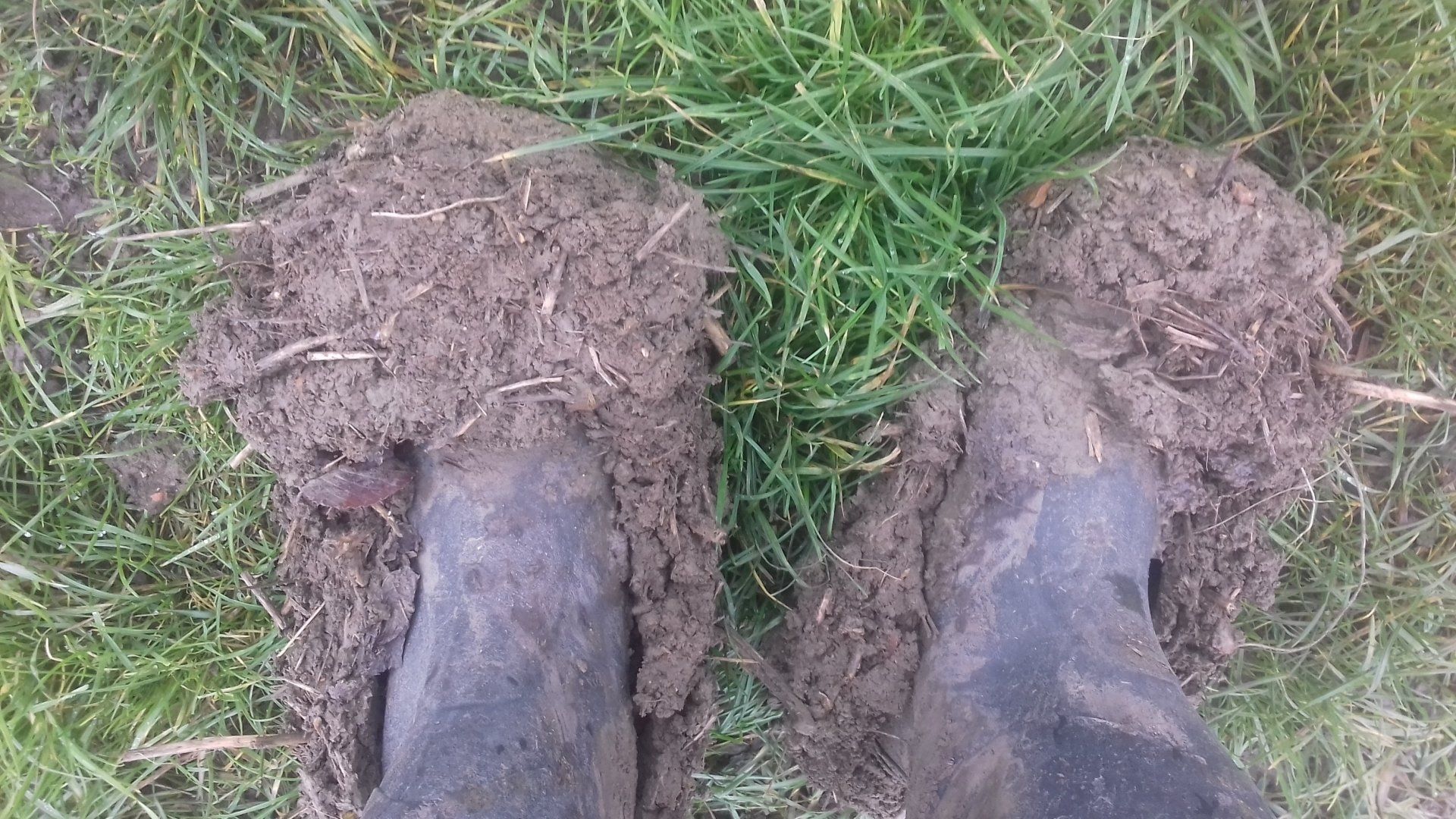
Again, it has been the wet weather that has caused further delay to the drilling. Last month I asked for 10 consecutive dry days to hopefully get the autumn drilling finished. I have emptied the rain gauge 13 times in the month. The November average is 55mm and we have just had another 85 mm of soaking. This morning I snatched 3 hours drilling on the slightly frozen ground before it got light. The chances of getting done what we set out to do in the autumn is now only slight. I shall keep you informed, but I know now the next harvest will be below average. Unfortunately, a couple of our neighbours have got stuck in the mud. I was at Keyston when Minto got his wellies stuck in the ground and ended up in hospital with ankle ligament trouble. Dan from Covington is also suffering with a bad knee. Others have had it worse than us. The Midlands & Yorkshire have had some severe flooding. The Environment Agency have been busy issuing flood warnings. It has been more than farmland that has been flooded. Better late than never, but I was pleased to read that our NFU president has been meeting the head of the Environment agency Emma Howard Boyd to try to get something more practical done to prevent the same happening again. Time will tell. I could go on: water only flows downhill! If it gets blocked, the level rises. Unable to make progress outside, I have been driven into the office. It has been many years since we had an insurance review. We met with our own mutual, NFU Insurance, to check all values of what they cover. Vehicles, tractors, houses, livestock, growing crops, stocks, farm buildings, machinery & equipment. As well, our product & public liability and the business policy were all gone through. The figures were then shown to an opposition company to quote for the same cover. 22man hours in our kitchen were spent with two companies getting like for like quotes. The introductory offer from the other company came out more expensive than our mutual. Nationally the NFU insure 85% of farms and have a retention rate of over 90%. I am now happy to be with the majority again. Let’s hope we don’t need to have a claim. I still remember and remind myself what my father taught be about insurance. “Insure what you can’t afford to lose”. We take many calculated risks to keep the premium down. Insurance is only buying a promise IF something happens! I have also been spending time in the office for a future building project. We are planning to put up a new chemical store and sprayer filling building. Application for grant funding has gone in and plans have passed with the HDC. Hopefully we shall be able to start in the spring. As ever the drawing, planning and quotes take time. We will also be harvesting roof water to use for cattle drinking and crop spraying. I shall keep you informed of progress. Last week to mark Max’s 29th birthday, Gavin & family have released plans for a New Year’s Day walk in memory of him & to start the new year on a new tone. An 8 mile walk is planned with stops at two local farms for sustenance. The number of people registering to walk has nearly reached the capacity. Please contact Gavin if interested. Others are giving money to the charity for not walking. I give the just giving page should you feel you could donate. I appreciate these requests are frequent, but this is so close to home. www.justgiving.com/fundraising/3FarmWalk
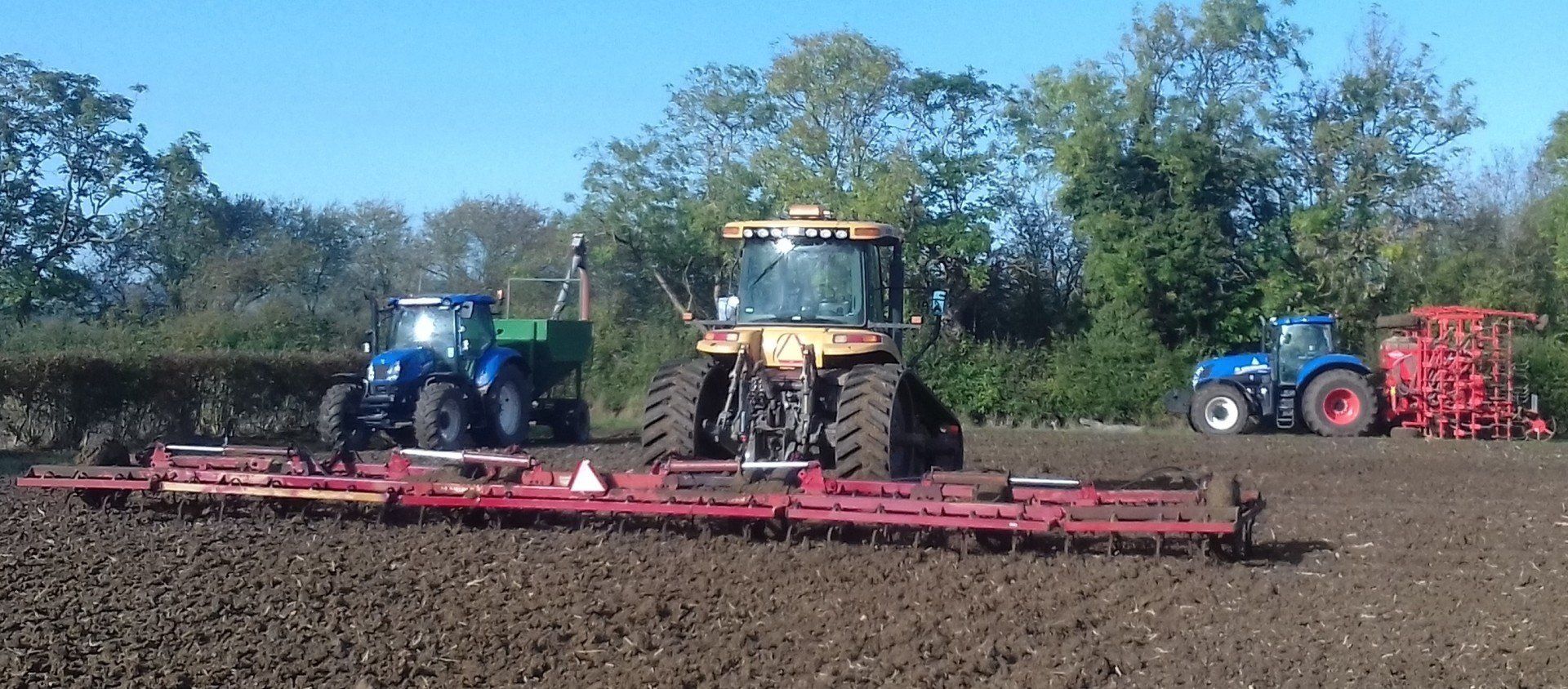
This month again it is the weather that has made the report headline. In the last 6 weeks we have had 150 mm of rain. The fields have reached saturation point and the ditches & drains have been running. The drains hardly ran last winter, and the land is currently so wet that drilling has been very difficult. In a normal year we would have finished the autumn planting by now. Currently we have only got about a third done. We have had to drag an old cultivator out of retirement. It is 40 feet wide and light and has been able to get over some of the fields better that some of the modern tackle. We bought it in 1988 and it hasn’t been used for nearly 20 years. It has needed some loving care but has been useful. (picture attached) The consequence is simple: if it doesn’t dry up soon there won’t be much to harvest next August. All we need is about ten consecutive dry days. The old saying “Well sown is half grown” is so true and we must give the seeds a sporting chance to produce a fair crop. Hopefully I shall be able to report better next month. The cattle are nearly all in the buildings for the winter. Again, they were making a mess in the grass fields because of the wet. If the hooves damage the grass, we know that next years hay crop will be compromised. Luckily, we have got plenty of hay & straw. We will be able to get through the winter but may not have a lot to sell next March. Finally, I am pleased to report that a local farmer, Sam got married last week. This is a normal time for farmers as the outside work should be done and time allows for a wedding to go ahead. Naturally they wanted good food for the wedding breakfast. It was my pleasure to be asked to supply enough beef joints to be carved at the tables for 180 guests. There was a bit of pressure as the Groom’s father has an interest in a butcher’s shop. It rained all day, but the food and drink did not dampen the spirits for a good time to be had by all. I was delighted to receive such a compliment from the hostess on the Sunday about how the beef was enjoyed by their guests. The final comment was soon executed “Send the bill!” If you would like a similar joint on your Christmas tables I will do my best to ensure you are looked after.

